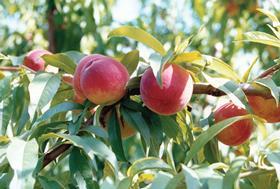
A heatwave apocalyptically dubbed ‘Lucifer’ has descended on southern Europe, with countries including Spain, Italy, Croatia and Romania witnessing temperatures in excess of 40oC.
The situation in Italy appears critical, with north-western, northern and central parts of the country, as well as major islands including Sicily and Sardinia, enduring what is reportedly the worst drought in a decade.
This year’s recorded rainfall is apparently just 6 per cent of the recent average, while temperatures for January-July are reported to be three degrees higher than average, creating major problems for producers and damaging crops.
In Volpedo, in the north-east region of Piedmont, an annual festival dedicated to the area’s peach production was cancelled earlier this week due to a lack of product, with the heatwave compounding losses incurred earlier in the year due to frost.
Gianpiero Chiapparoli, commercial manager at Volpedo Frutta, said the cooperative’s member producers stood to lose around €800m in sales.
“Around 70 per cent of the crop has been damaged and the 30 per cent that remains on the plants is very small in terms of size, so it’s worth very little,” he explained in an interview with La Stampa.
Importers of stonefruit in the Netherlands and the UK are alert to the danger, but have so far felt few negative effects.
“There is a lot of fruit around, as there has been all year,” said one UK importer, which sources predominantly from Spain. “Prices have remained steady. We hear that plums may be affected as we go into September and October, with more losses than in previous seasons. There can be a greater amount of waste as a result, which may drive prices up.”
Luis Ochoa of Dutch importer Olympic Fruit said that volumes of Spanish peaches were up due to the high temperatures. He also revealed that larger sized fruit would be limited, both for peaches and paraguayos, with smaller sizes abundant. However, he didn’t anticipate an earlier end to the season as a consequence.
In France, Vincent Faugier of Rhone valley-based stonefruit cooperative Fruits Union said that the oppressive heat had been harder on producers than their products.
“The only notable effect of these high temperatures has been on the size of the fruit,” he said. “We are seeing smaller sizes of varieties that are ripening during this time of extreme heat.”
AREFLH, the assembly for European fruit- and vegetable- producing regions, has urged the European Commission to take action by increasing withdrawal volumes as part of the exceptional support measures introduced following Russia’s embargo.
Additional measures are required, Areflh argues, due to the continuing Russian ban, new phytosanitary restrictions preventing exports to Belarus, competition from Turkey, and an unusually high concentration of smaller sized fruit.
“These small sizes are less profitable for producers and their large presence has resulted in an exceptional price reduction, given the quantities available,” the assembly stated. “This situation is unsustainable for producers, following several years of market crises.”



